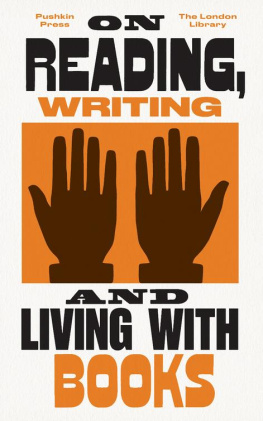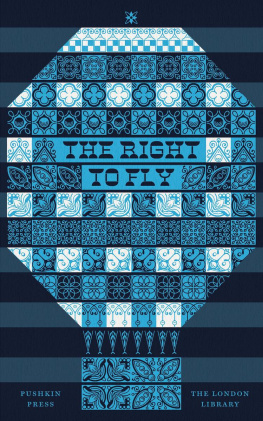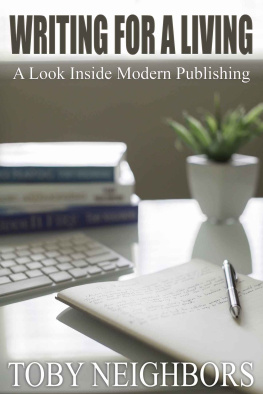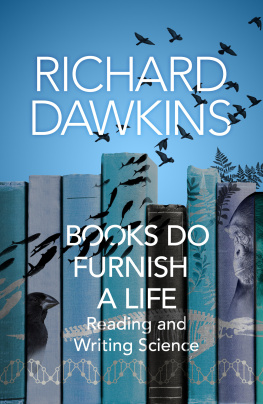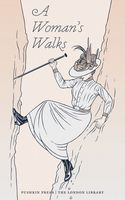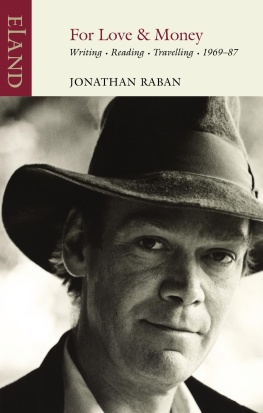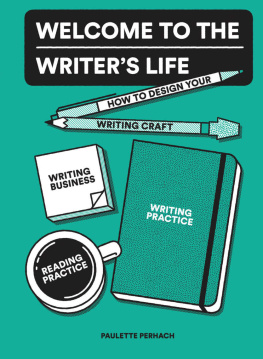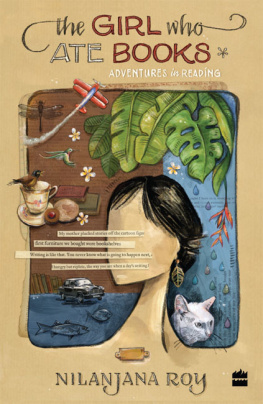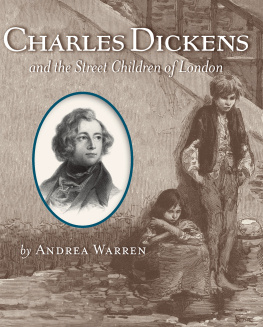P USHKIN P RESS T HE L ONDON L IBRARY
The London Library is the worlds largest independent library. Founded in 1841 by Thomas Carlyle (in reaction to the museum headache brought on by the crowds in the British Museum Reading Room), it has become a haven for readers, writers and all who draw strength, solace or inspiration from the presence of books. Some of the most illustrious figures of the last two centuries have written, thought and walked there: George Eliot, Charles Dickens, E.M. Forster, Virginia Woolf and many more were members.
And over time, some of these celebrated members have sharedwith each other, or with an interested publictheir views on the delights, challenges and joys of reading, writing and living with books.
The books in Found on the Shelves have been chosen to give a fascinating insight into the treasures that can be found while browsing in The London Library. Now celebrating its 175th anniversary, with over seventeen miles of shelving and more than a million books, The London Library has become an unrivalled archive of the modes, manners and thoughts of each generation which has helped to form it.
From essays on dieting in the 1860s to instructions for gentlewomen on trout-fishing, from advice on the ill health caused by the modern craze of bicycling to travelogues from Norway, they are as readable and relevant today as they were more than a century ago.
Contents
Published in 1932
BY VIRGINIA WOOLF
V IRGINIA W OOLF (18821941) was the daughter of Leslie Stephen, who was President of The London Library from 1892 until his death in 1904. During his lifetime, Virginia had access to the collections of the Library, and she joined in her own right just four days after his death, giving her occupation as Spinster. She was one of the greatest novelists and essayists of the twentieth century.
I n the first place, I want to emphasise the note of interrogation at the end of my title. Even if I could answer the question for myself, the answer would apply only to me and not to you. The only advice, indeed, that one person can give another about reading is to take no advice, to follow your own instincts, to use your own reason, to come to your own conclusions. If this is agreed between us, then I feel at liberty to put forward a few ideas and suggestions because you will not allow them to fetter that independence which is the most important quality that a reader can possess. After all, what laws can be laid down about books? The battle of Waterloo was certainly fought on a certain day; but is Hamlet a better play than Lear? Nobody can say. Each must decide that question for himself. To admit authorities, however heavily furred and gowned, into our libraries and let them tell us how to read, what to read, what value to place upon what we read, is to destroy the spirit of freedom which is the breath of those sanctuaries. Everywhere else we may be bound by laws and conventionsthere we have none.
But to enjoy freedom, if the platitude is pardonable, we have of course to control ourselves. We must not squander our powers, helplessly and ignorantly, squirting half the house in order to water a single rose-bush; we must train them, exactly and powerfully, here on the very spot. This, it may be, is one of the first difficulties that faces us in a library. What is the very spot? There may well seem to be nothing but a conglomeration and huddle of confusion. Poems and novels, histories and memoirs, dictionaries and blue-books; books written in all languages by men and women of all tempers, races, and ages jostle each other on the shelf. And outside the donkey brays, the women gossip at the pump, the colts gallop across the fields. Where are we to begin? How are we to bring order into this multitudinous chaos and so get the deepest and widest pleasure from what we read?
It is simple enough to say that since books have classesfiction, biography, poetrywe should separate them and take from each what it is right that each should give us. Yet few people ask from books what books can give us. Most commonly we come to books with blurred and divided minds, asking of fiction that it shall be true, of poetry that it shall be false, of biography that it shall be flattering, of history that it shall enforce our own prejudices. If we could banish all such preconceptions when we read, that would be an admirable beginning. Do not dictate to your author; try to become him. Be his fellow-worker and accomplice. If you hang back, and reserve and criticise at first, you are preventing yourself from getting the fullest possible value from what you read. But if you open your mind as widely as possible, then signs and hints of almost imperceptible fineness, from the twist and turn of the first sentences, will bring you into the presence of a human being unlike any other. Steep yourself in this, acquaint yourself with this, and soon you will find that your author is giving you, or attempting to give you, something far more definite. The thirty-two chapters of a novelif we consider how to read a novel firstare an attempt to make something as formed and controlled as a building: but words are more impalpable than bricks; reading is a longer and more complicated process than seeing. Perhaps the quickest way to understand the elements of what a novelist is doing is not to read, but to write; to make your own experiment with the dangers and difficulties of words. Recall, then, some event that has left a distinct impression on youhow at the corner of the street, perhaps, you passed two people talking. A tree shook; an electric light danced; the tone of the talk was comic, but also tragic; a whole vision, an entire conception, seemed contained in that moment.
But when you attempt to reconstruct it in words, you will find that it breaks into a thousand conflicting impressions. Some must be subdued; others emphasised; in the process you will lose, probably, all grasp upon the emotion itself. Then turn from your blurred and littered pages to the opening pages of some great novelistDefoe, Jane Austen, Hardy. Now you will be better able to appreciate their mastery. It is not merely that we are in the presence of a different personDefoe, Jane Austen, or Thomas Hardybut that we are living in a different world. Here, in Robinson Crusoe, we are trudging a plain high road; one thing happens after another; the fact and the order of the fact is enough. But if the open air and adventure mean everything to Defoe they mean nothing to Jane Austen. Hers is the drawing-room, and people talking, and by the many mirrors of their talk revealing their characters. And if, when we have accustomed ourselves to the drawing-room and its reflections, we turn to Hardy, we are once more spun round. The moors are round us and the stars are above our heads. The other side of the mind is now exposedthe dark side that comes uppermost in solitude, not the light side that shows in company. Our relations are not towards people, but towards Nature and destiny. Yet different as these worlds are, each is consistent with itself. The maker of each is careful to observe the laws of his own perspective, and however great a strain they may put upon us they will never confuse us, as lesser writers so frequently do, by introducing two different kinds of reality into the same book. Thus to go from one great novelist to anotherfrom Jane Austen to Hardy, from Peacock to Trollope, from Scott to Meredithis to be wrenched and uprooted; to be thrown this way and then that. To read a novel is a difficult and complex art. You must be capable not only of great fineness of perception, but of great boldness of imagination if you are going to make use of all that the novelistthe great artistgives you.

